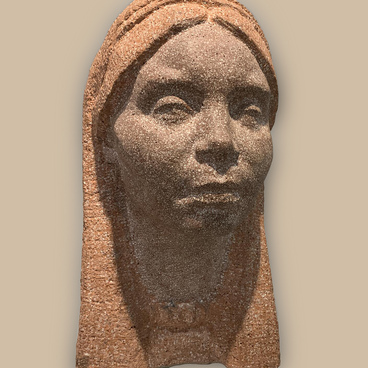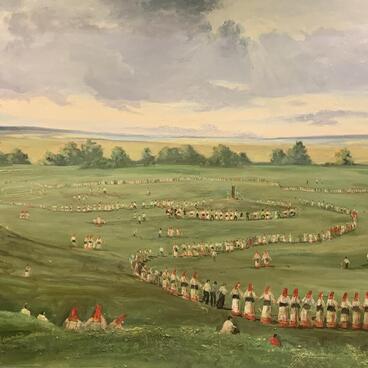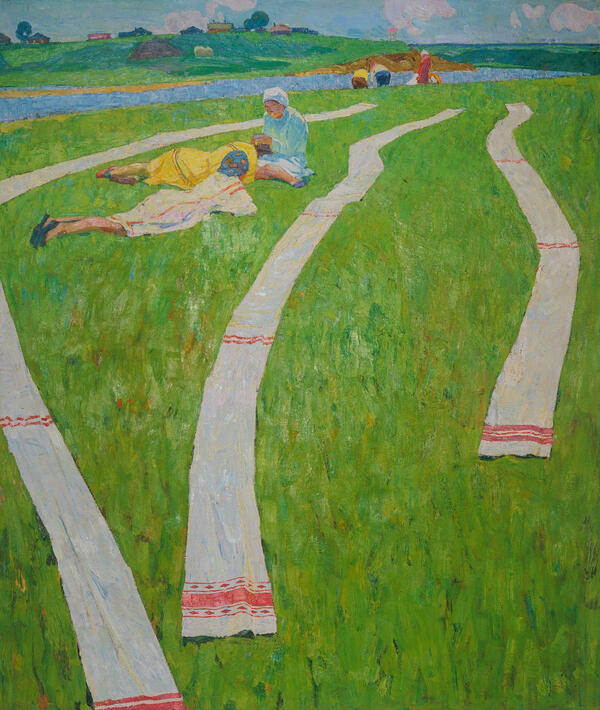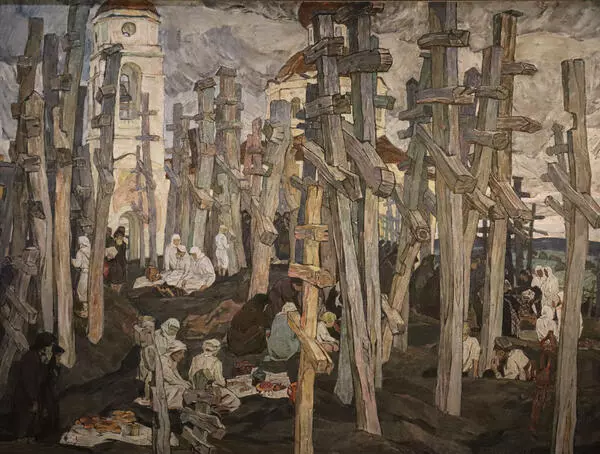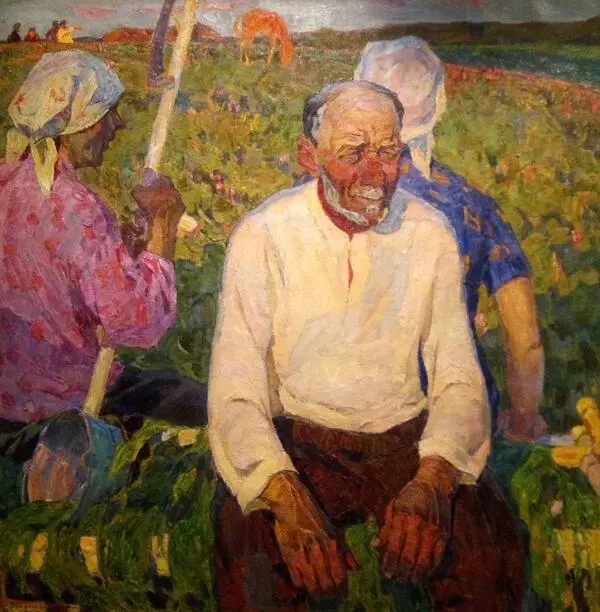In the 1960s, Mordovian artists, following the trends of their time, painted large-scale paintings about the life of their contemporaries, with national motifs closely intertwined with the spirit of the Soviet era. The painting “Mordovian Fair” by Viktor Bednov is an example of this trend.
Viktor Andreevich Bednov is a realist painter. He graduated from Penza Art College and repeatedly worked at Repin Akademicheskaya Dacha, establishing creative contacts with artists from other regions and exchanging professional experience. Works by Viktor Bednov are displayed in different cities of Russia, which indicates the recognition of the high level and artistic significance of his works. His artistic arsenal includes all painting genres: thematic painting, portrait, landscape, and still life. His canvases depict the life of the Mordovian village and the cultural traditions of the people. Attracting the attention of viewers and critics, the art of Viktor Bednov is distinguished by his honed skill, attention to moral and ethical issues, deep psychologism of images, and convergence of complex content and emotional connections.
The artist knows well the rural way of life and seeks to capture its characteristic features. In the painting “Mordovian Fair” he turns to the festive side of life of the villagers. His impressions of the fair in the district center of Tengushevo are combined with his childhood memories. The canvas recreates a lively bustle. The artist depicts women both in casual clothing and in Moksha costumes. What is interesting is that there are two variations of the traditional costume. In the foreground is a woman wearing a dress common in the early 20th century. It was worn over a traditional shirt and, typically, accompanied by an apron. The woman in the background on the right is dressed in a traditional Moksha multilayered festive costume. The sunny day’s glow, which is in tune with the cheerful mood of the characters, is skillfully conveyed. This atmosphere is emphasized by the brushwork of the artist, who paints the canvas with thick, sharp, active strokes. Viktor Bednov admires the figures of Mordovian women, the clean lines of their faces, their maternal tenderness. Local color spots of the outfits seem to repeat the characteristic set of colors of Moksha embroidered decorative patterns.
Viktor Andreevich Bednov is a realist painter. He graduated from Penza Art College and repeatedly worked at Repin Akademicheskaya Dacha, establishing creative contacts with artists from other regions and exchanging professional experience. Works by Viktor Bednov are displayed in different cities of Russia, which indicates the recognition of the high level and artistic significance of his works. His artistic arsenal includes all painting genres: thematic painting, portrait, landscape, and still life. His canvases depict the life of the Mordovian village and the cultural traditions of the people. Attracting the attention of viewers and critics, the art of Viktor Bednov is distinguished by his honed skill, attention to moral and ethical issues, deep psychologism of images, and convergence of complex content and emotional connections.
The artist knows well the rural way of life and seeks to capture its characteristic features. In the painting “Mordovian Fair” he turns to the festive side of life of the villagers. His impressions of the fair in the district center of Tengushevo are combined with his childhood memories. The canvas recreates a lively bustle. The artist depicts women both in casual clothing and in Moksha costumes. What is interesting is that there are two variations of the traditional costume. In the foreground is a woman wearing a dress common in the early 20th century. It was worn over a traditional shirt and, typically, accompanied by an apron. The woman in the background on the right is dressed in a traditional Moksha multilayered festive costume. The sunny day’s glow, which is in tune with the cheerful mood of the characters, is skillfully conveyed. This atmosphere is emphasized by the brushwork of the artist, who paints the canvas with thick, sharp, active strokes. Viktor Bednov admires the figures of Mordovian women, the clean lines of their faces, their maternal tenderness. Local color spots of the outfits seem to repeat the characteristic set of colors of Moksha embroidered decorative patterns.

